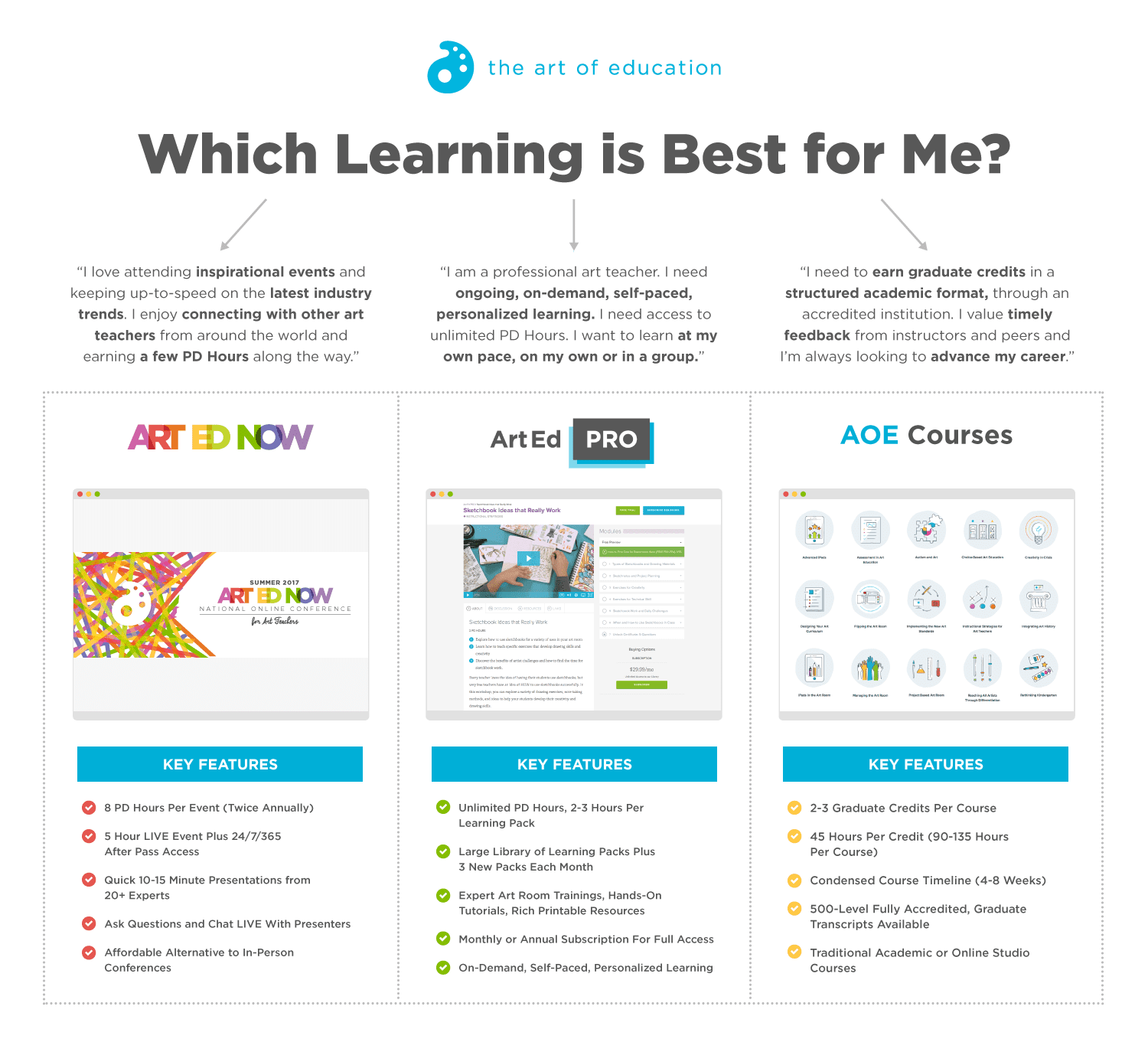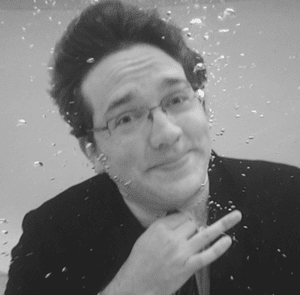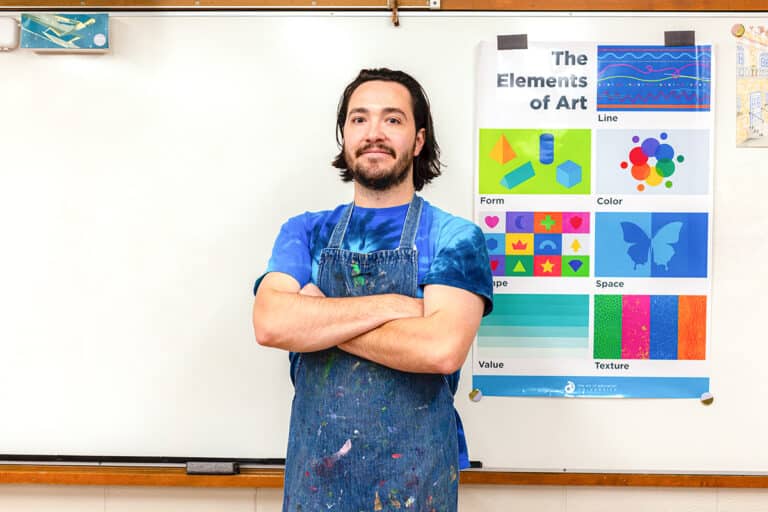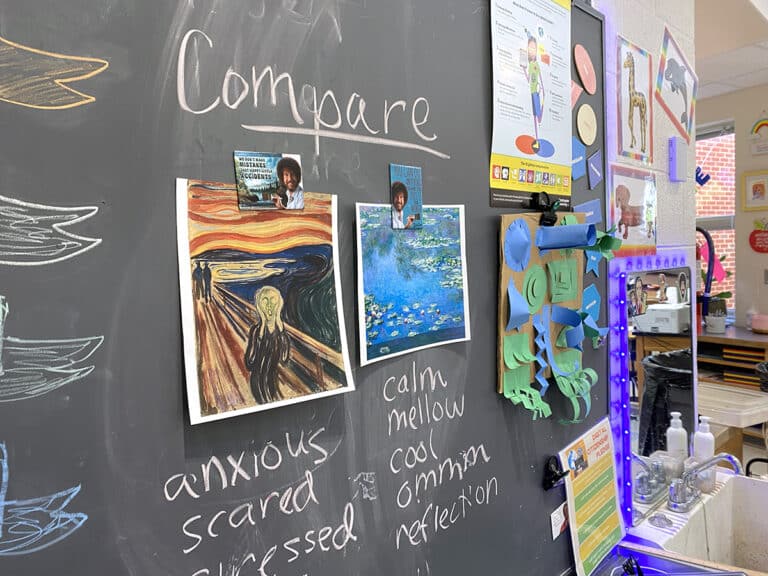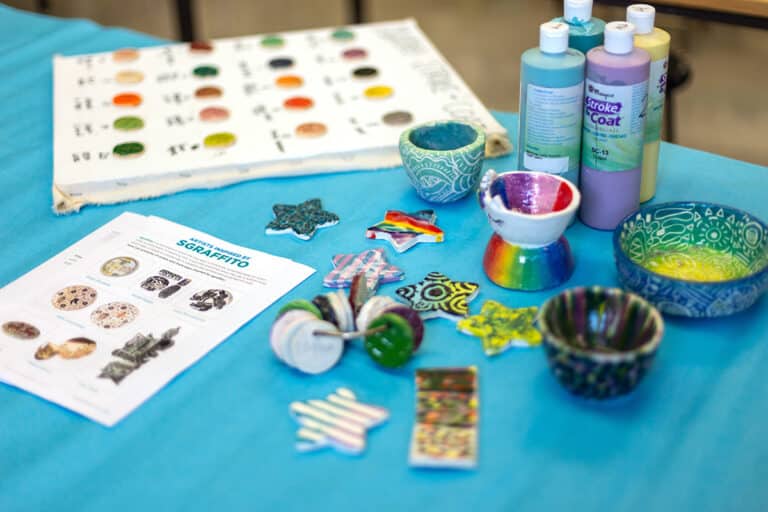With the launch of Art Ed PRO, art teachers now have another quality option for professional development. PRO, the essential subscription service for art teachers, is the newest option for ongoing, on-demand professional development.

You can learn all about PRO, including how to get your free trial, by heading here.
But with so many PD options, you may be asking yourself, “Which type of PD is right for me?”
The AOE Magazine will continue to feature the exact same amazing free daily articles, videos, and resources that you are used to. But if you are looking to deepen your learning and understanding, there are three great options available. Between Art Ed PRO, Art Ed Now, and AOE’s graduate courses, you can find the original, engaging, and relevant PD you deserve. But how can you tell which of the options is best for you?
Let’s take a look at each offering to determine the right fit for your needs.
Download a copy of the chart below to keep for handy reference!
Art Ed PRO
What it is: On-demand PD available anytime, anywhere.
Who should use it: Individuals or teams who want ongoing PD throughout the year.
What you can earn: Unlimited PD hours at a rate of two to three hours per Learning Pack.
PRO is the essential subscription service for art teachers. Whether you want to learn individually or with your team, PRO allows you to choose the topic and the pace of your learning. The Learning Packs included in the PRO library allow you to dive deep into topics, moving beyond YouTube, Pinterest, and teacher sharing sites. With 45 to 90 minutes of video content in each Learning Pack, as well as numerous resources, you can work on your own schedule and decide which topics interest you most.
Art Ed Now
What it is: A one-day online conference.
Who should use it: Individuals or teams who want to focus on a day-long, concentrated learning experience.
What you can earn: Eight PD Hours per event.
Do you love attending events and connecting with other teachers, but can’t always afford the expense? Do you want to keep up on the most current topics in art ed? Do you love feeling inspired? Each Art Ed Now event has over twenty ten-minute presentations allowing you to hear from a variety of voices over the course of five hours. Earn your remaining three hours by diving into the amazing resources provided with every presentation. Plus, in addition to a live chat with the presenters on the day of the conference, you can access every presentation for a full year after the event. One summer conference and one winter conference each year ensure you will be inspired all year long!
AOE Graduate Courses
What they are: Accredited graduate-level academic study on a variety of topics.
Who should use it: Teachers looking to advance their salary, earn credits toward a degree, or teachers who need a lot of PD hours in a short, structured time frame.
What you can earn: Two or three graduate credits or 90-135 contact hours per course
If you are looking for deep academic discourse or a chance to get back into your own art practice, AOE graduate courses are the option for you. All courses come with the added benefit of timely one-on-one feedback from AOE’s dedicated graduate instructors. Some teachers take AOE courses to advance on the salary scale, some are earning PD hours to work toward re-certification, and others take them to earn graduate credit. No matter your situation, these accredited courses take place over a four to eight-week time frame, allowing a deep course of study in a short, structured timeframe that fits your schedule.
There are plenty of engaging and relevant options for art teachers when it comes to professional development. The trick is finding the right fit for your life, your schedule, and your needs. With the introduction of Art Ed PRO, you are now empowered to take control of your professional learning in the way that works best for you!
Have you had a chance to check out Art Ed PRO yet? What are your thoughts?
What questions do you have about Art Ed PRO?
Magazine articles and podcasts are opinions of professional education contributors and do not necessarily represent the position of the Art of Education University (AOEU) or its academic offerings. Contributors use terms in the way they are most often talked about in the scope of their educational experiences.
